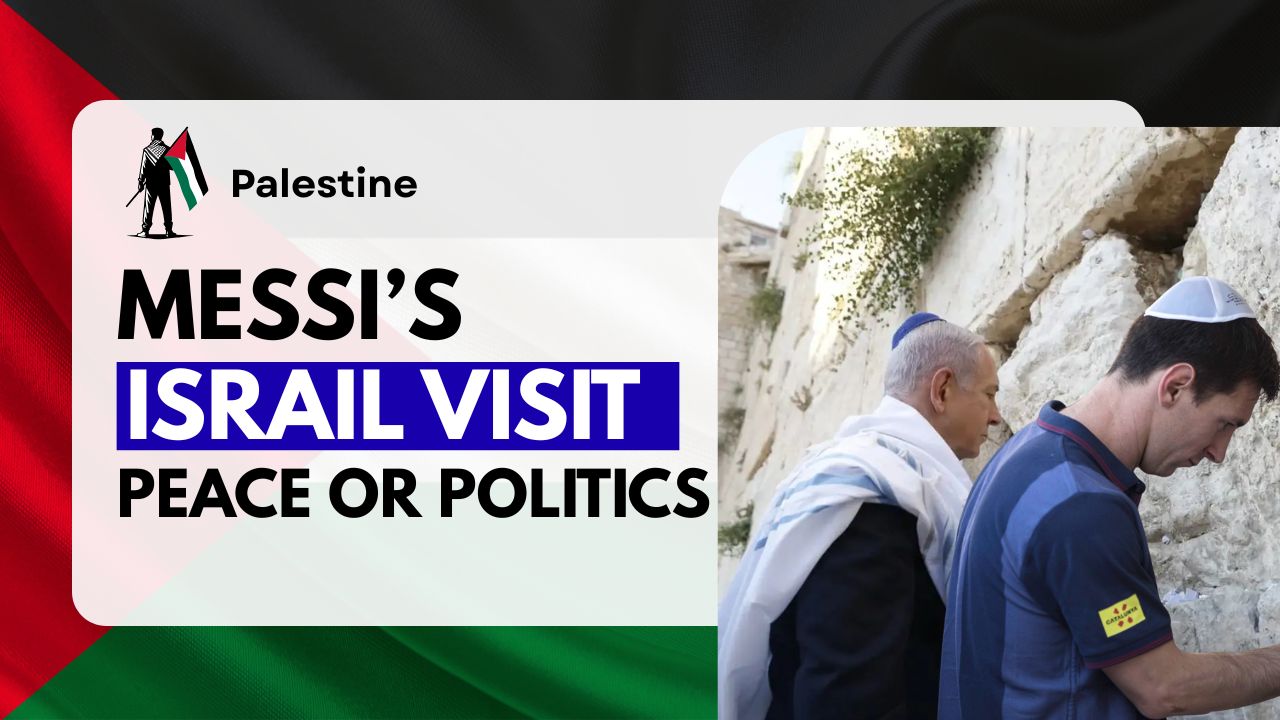Messi’s Israel Visit – In August 2013, the superstar forward of FC Barcelona – Lionel Messi -joined his team on the pitch and in a high-profile peace tour to Israel and the West Bank. One such moment that made international headlines was when Messi toured the Western Wall in Jerusalem and placed a piece of paper containing wishes for good luck for people suffering from cancer into a crack.
The act of reconciliation soon became a matter of discussion as well, about whether it was real cry for peace or if that turn the other cheek had been read more cynically in one of the most embattled places on earth.
The Importance of the Western Wall
The Western Wall, or Wailing Wall, is one of Judaism’s most sacred structures and an emblem of endurance and prayer for Jews around the world. Located in East Jerusalem, a sector that has both religious and political significance, the site represents more than just spiritual fervor — it dwells on issues of sovereignty and rival claims within the Israeli-Palestinian dispute. The act of tucking notes with your wishes into the cracks has long been a tradition, one done by many who visit to signify hope, reflection and prayer.
A Gesture of Peace and Unity
For a lot of culés (Barcelona fans) Messi’s appearance went beyond the merely religious. The visit by his teammates from the Barcelona club was part of a wider initiative for peace and reconciliation. The trip was filled with activities that brought Israeli and Palestinian children together through football clinics, meetings with local leaders and a focus on the role sport can play in creating dialogue and understanding. Messi’s note at the Western Wall was broadly interpreted as a humble personal call for peace in a region that has known decades of conflict.
Political Interpretations and Controversies
Yet, in such a tense regional atmosphere small symbols can be seen through different lenses and analyzed. Critics said that any trip to East Jerusalem sights would inevitably bolster Israeli claims over land that Palestinians also insist belongs to them. Some perceived that Messi’s presence could politicize the role of a sports figure, while others saw it as capitalizing on his global influence for a good cause. The polarized responses demonstrated the difficulty of keeping sport, religion and politics apart in this highly particular context.
Messi’s Role Beyond Football
Lionel Messi is famous for his exploits on the soccer field, but his visit to the Western Wall showed how sports stars can be unwitting participants in international diplomacy. Although Messi did not make any explicit political statements, his behavior served as an example of being closely scrutinized and interpreted by diverse audiences worldwide. This is just one example of weigh-in athletes having to play when engaged within regions where symbolism can be very politically weighty.
In summary, this western wall visit by Messi during the FC Barcelona peace tour in 2013 evoked a wide spectrum of responses: from appreciation for a peace-promoting image of hope to dubiousness regarding political implications. But no matter the interpretation, it underscored the outsized posture of sports figures off the pitch and the tightrope they walk by participating in politically sensitive playing fields.









Comments are closed.